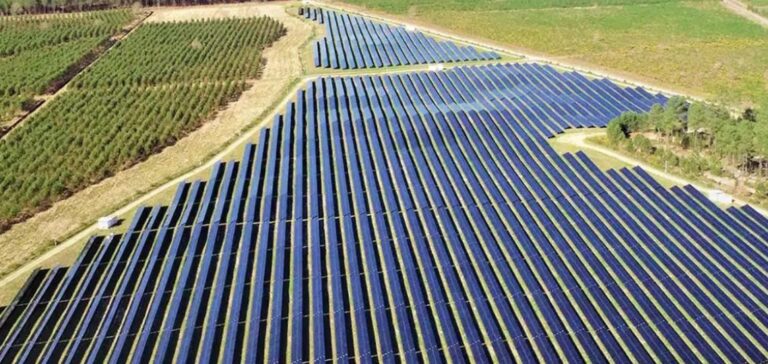French renewable energies producer Neoen reported a sharp rise in first-half earnings on Thursday, with the commissioning of several sites including Finland’s largest onshore wind farm and Australia’s largest solar farm.
Neoen, a major player in renewable energies, remains confident despite challenges
Over these six months, net profit amounted to 92 million euros, on sales up 24% to 277 million. In the first half of 2022, the company, which operates in 16 countries, suffered a loss of 21 million due to exceptional items, including an asset impairment charge linked to the security situation in Mozambique.
With seven gigawatts of assets in operation or under construction in solar, onshore wind and storage at the end of June, Neoen is “without doubt” the world’s leading pure player in the sector, according to CEO Xavier Barbaro. Founded in 2008 and “profitable since 2011”, the company entered the renewables business after the multi-energy giants, but it compares favorably with some in terms of capacity, with a “secured” portfolio of 8 GW and a target of 10 GW by 2025.
“In an environment that is more favorable than ever to renewable energies (…) we are very confident in our ability to achieve over 700 million euros in adjusted gross operating income (Ebitda) and over 10 GW installed by the end of 2025,” says its boss.
The company has announced the construction of its first long-life battery, in Australia, capable of delivering 800 MWh over four hours. And the longer the battery can operate, the more value it creates per Mwh, as it is able to provide more services (grid stabilization, smoothing out peaks in production or consumption, etc.).
Neoen sells most of its electricity via 10- or 20-year over-the-counter contracts. In a context of inflation, affecting turbine prices for example, “the prices of contracts signed today are around 50% higher than two years ago”, notes Mr Barbaro.
But “the price of renewables remains more competitive than all other energy sources”.
Australia, France and Finland are, in order, Neoen’s main markets. But France remains a complicated territory for renewables, he laments: “no, there has been no simplification, despite the so-called Renewable Energies Acceleration Act” passed this year.






















